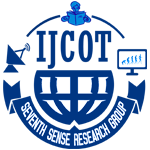The peer review process at SSRG strives to be transparent, fair, thorough, and objective, periodically revised, outlines the basic peer review process used by the journal.
The editor-in-chief appoints individuals to serve on the editorial board; the majority of editorial board members serve as decision editors, responsible for managing the peer review process of submitted manuscripts. (There are also several special editors on the board who do not serve as decision editors, but instead manage other aspects of the journal.) Candidates are selected based on expertise in a specific field, geographic and topic distribution, nomination by existing editorial board members, and other factors. Editors serve three-year terms, with reappointment to a second term being expected but not guaranteed, and a third term being at the discretion of the editor-in-chief based on outstanding performance. Performance characteristics of the members of the editorial board will be assessed periodically, and will contribute to reappointment decisions. General performance data, such as the number of manuscripts handled, may be made available to the editorial board as a whole, to allow for individual editors to judge their performance against others; more detailed performance data, such as the number of successful appeals, will be kept confidential.
Peer reviewers for the journal are also selected by the editor-in-chief. In general, a candidate should have a minimum of two peer-reviewed research papers published for which he or she served as first or second author.
The decision editors routinely assess all reviews for quality, assigning a score (1-4 scale) for each review. Both ratings of quality and other performance characteristics (e.g. timeliness of reviews, and number of review invitations accepted, declined, and ignored) will be assessed periodically, and reviewers whose performance is inadequate will not be reappointed.
The peer-review process is double-blinded: the identity of the peer reviewers is not revealed to the authors, and the identity of the authors is not revealed to the reviewers, as long as the authors have adequately removed all identifying information from the manuscript. It is the responsibility of the authors to ensure adequate removal of such identifying information prior to manuscript submission. Authors may suggest both decision editors and peer reviewers, but there is no obligation on the part of the journal to accept these suggestions.
A submitted manuscript is a confidential communication, and peer reviewers must not retain, share, or copy it unless approved by the decision editor, e.g. for the purpose of getting confidential input from a colleague; such colleague must also be bound by the same level of confidentiality. If an author appeals an editor's decision, the appeal will be reviewed by the editor-in-chief, who may consult with one or more senior editors, and may discuss the appeal with the decision editor who handled the manuscript. The editor-in-chief may choose to affirm the initial decision, or allow the authors to resubmit the manuscript for another peer review, with a different decision editor and different peer reviewers. Other courses of action may be appropriate, based on the manuscript involved.
If a published paper is subsequently found to have errors or major flaws, an erratum notice or other notification of the problem will be published in the journal as soon as feasible.
Concerns about misconduct in the peer review or publication process will be handled by the journal to the extent possible; however, the employer of an involved individual, a granting agency, or a regulatory body may need to perform a more comprehensive review of alleged misconduct. It is not the journal's role to sanction one or more individuals, beyond potential publication of findings as they relate to the scientific record; such sanction is the purview of an employer, granting agency, or regulatory body.
Allegations of misconduct will initially be reviewed by the editor-in-chief, and will begin with a written communication to all involved parties conveying the allegation and requesting information. The editor in-chief may confidentially consult other editors, outside technical experts (with blinding of the identity of the individuals), or others as appropriate. At least one senior associate editor will assist in each such investigation. SSRG subscribes to the concepts promulgated by the Committee on Publication Ethics (COPE), and the COPE flowcharts will guide investigation and resolution of allegations of misconduct, including redundant/duplicate publication, plagiarism, fabricated data, reviewer misconduct, complaints against editors, and other ethical problems with submitted manuscripts.

